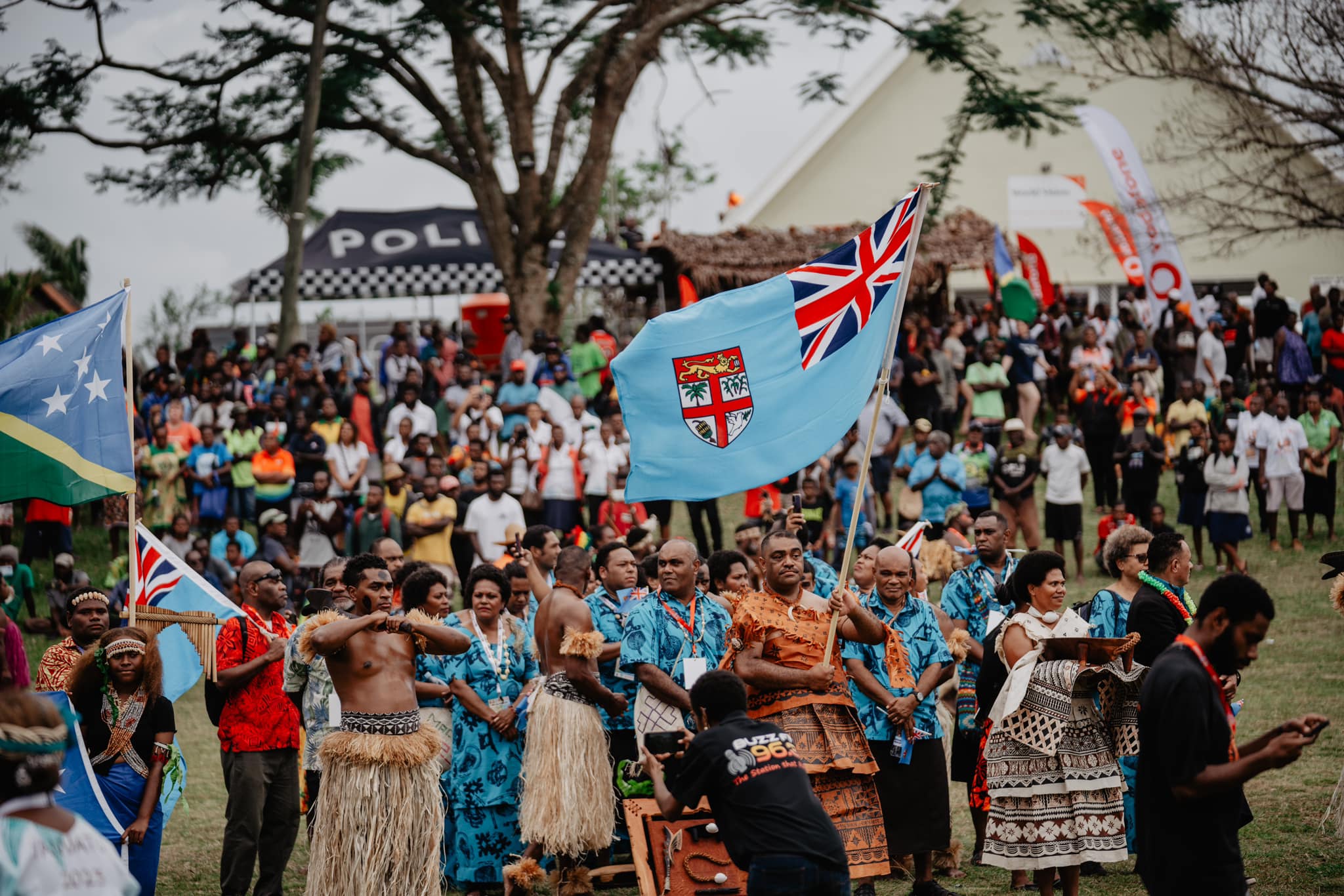By Ilan kiloe
As the 7th Melanesian Arts and Culture Festival commences in Port Vila this week, the public parade from seafront stage to Saralana Park already exhibited a great variety of cultures and traditions. The festival provides an opportunity for tribes and cultural groups across Melanesia display their traditional dances, chants, tunes, songs, and artifacts for public viewing and understanding of Melanesia’s Cultural Diversity. A time where Melanesian families and friends enjoy and reflect on the rich cultural heritage of their origins as Melanesians. The display of passion and the respect accorded to MSG cultural diversity is truly evident and is very humbling to watch.
As I parade with the crowd towards the Saralana Park, it felt like a dream, but as the Master of Ceremony announced the arrival of the MSG Chairman Prime Minister of Vanuatu Hon. Ismael Kalsakau and the parade entourage and delegates from across the Melanesian countries and provinces in Vanuatu, in what seems to me as “river of cultural displays” that is making its way to the open sea, I realised over time that it is a reality. I watch in total admiration and a number of thoughts swamped my mind. I quickly took out a note pad and started penning the notes on paper which I wish to share in this piece.
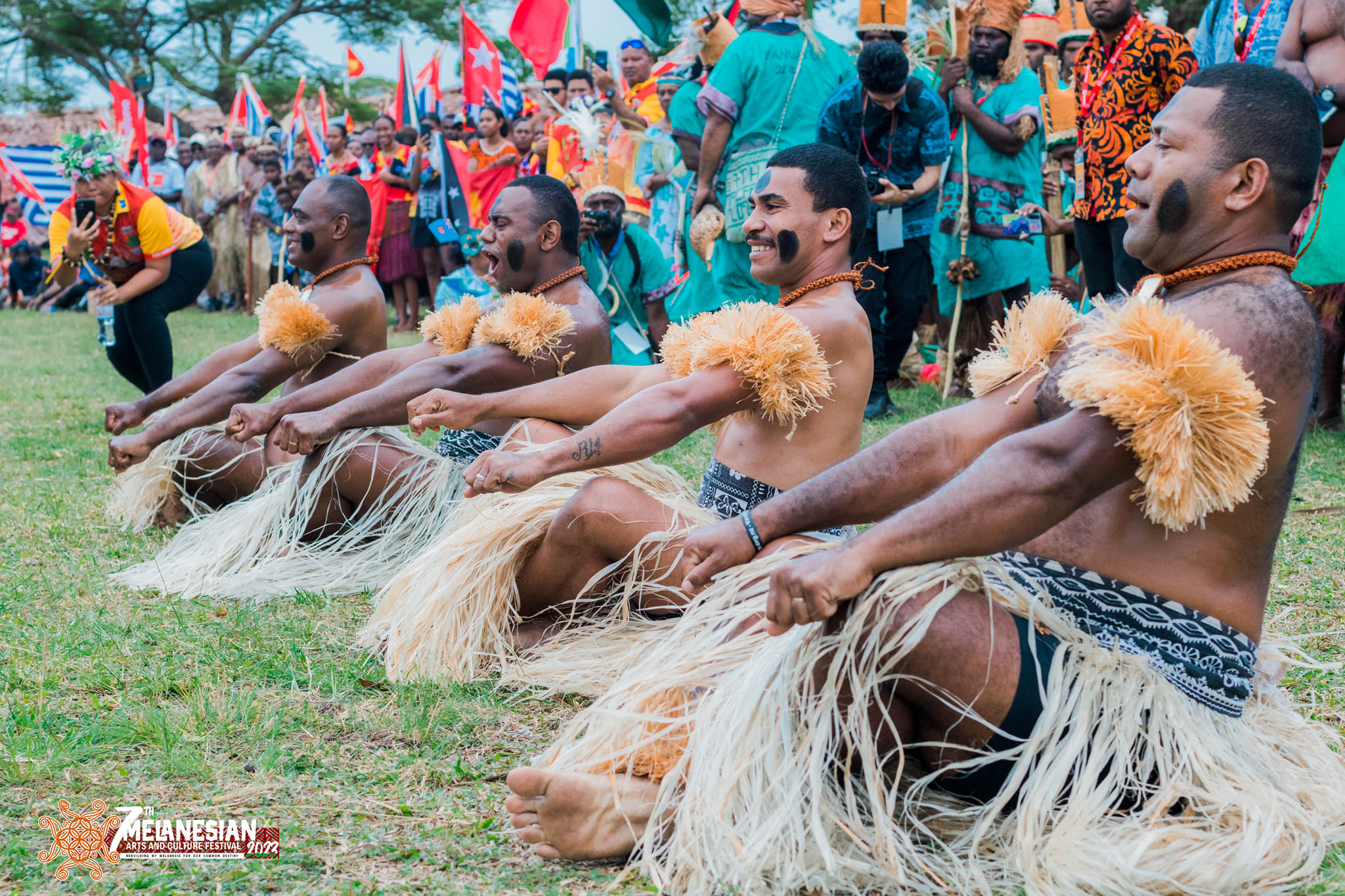
Firstly, Melanesian cultures and traditions are fundamental to social order, maintenance of relationship, unity, and solidarity in the MSG region. They are held in such high regard that the Constitutions of all Melanesian countries accord legal recognition to them. The preamble of the Constitution of Vanuatu, for instance, states that the country is founded on traditional Melanesian customs and values, faith in God, and Christian principles.
In the same token, the Agreement Establishing the Melanesian Spearhead Group (MSG), for example, provides for the promotion of Melanesian customs, while additional instruments such as the Treaty on the Protection of Traditional Knowledge and Expressions of Cultures (TKEC) between the MSG members calls for the greater protection of Melanesian customs.
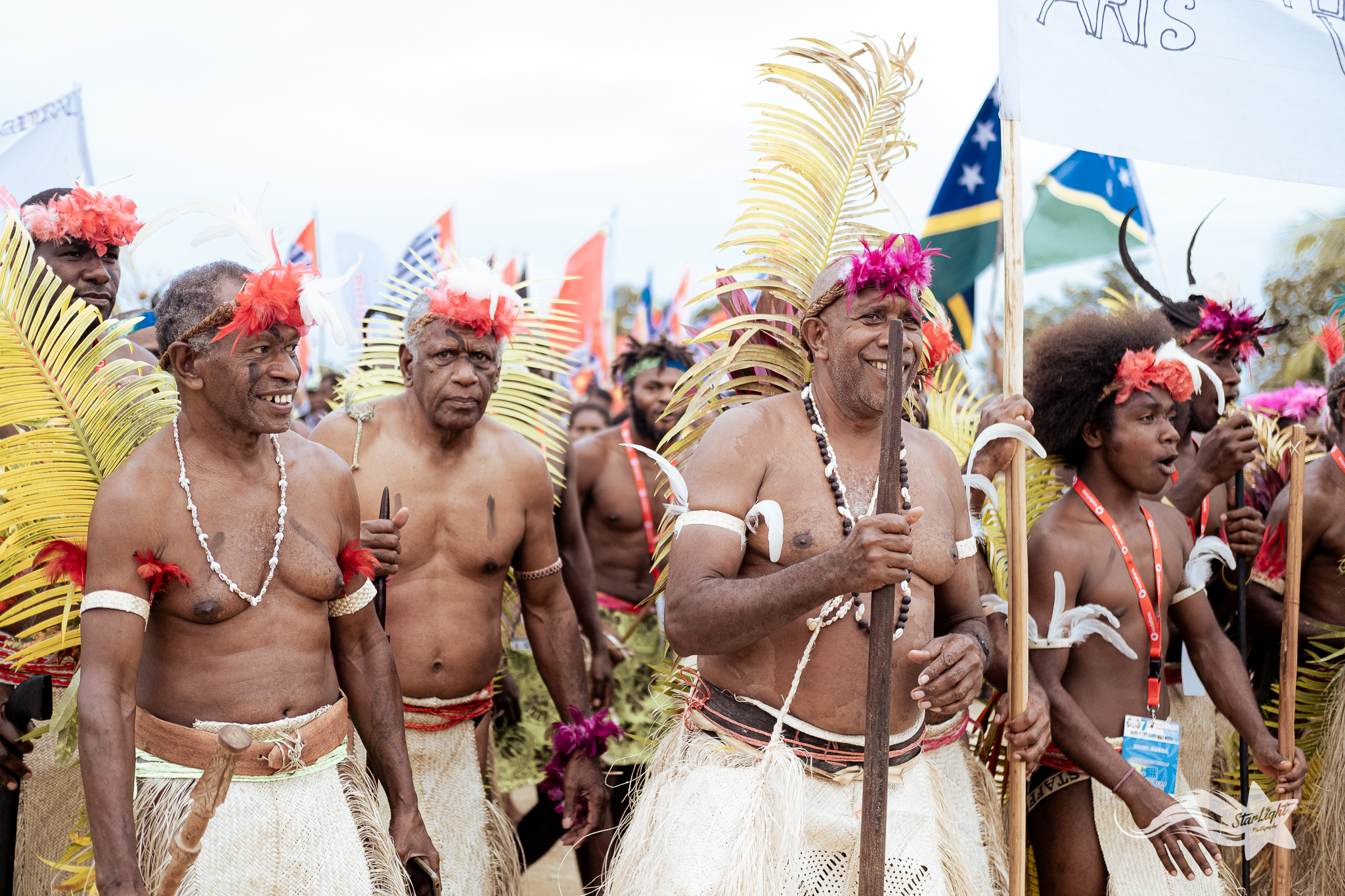
The TKEC treaty is a flagship work of the MSG. It aims to create rights on traditional knowledge and expressions of culture and to accord legal protection through the enactment of new legislations and setting up of national competent authority to oversee implementation of TKEC laws.
One of the original attempts of the TKEC is to allow the commercial development of traditional knowledge and cultural expressions whilst at the same time trying to guarantee adequate protection. This appears to be difficult but it is certainly achievable objective and the treaty has certain way to address this.
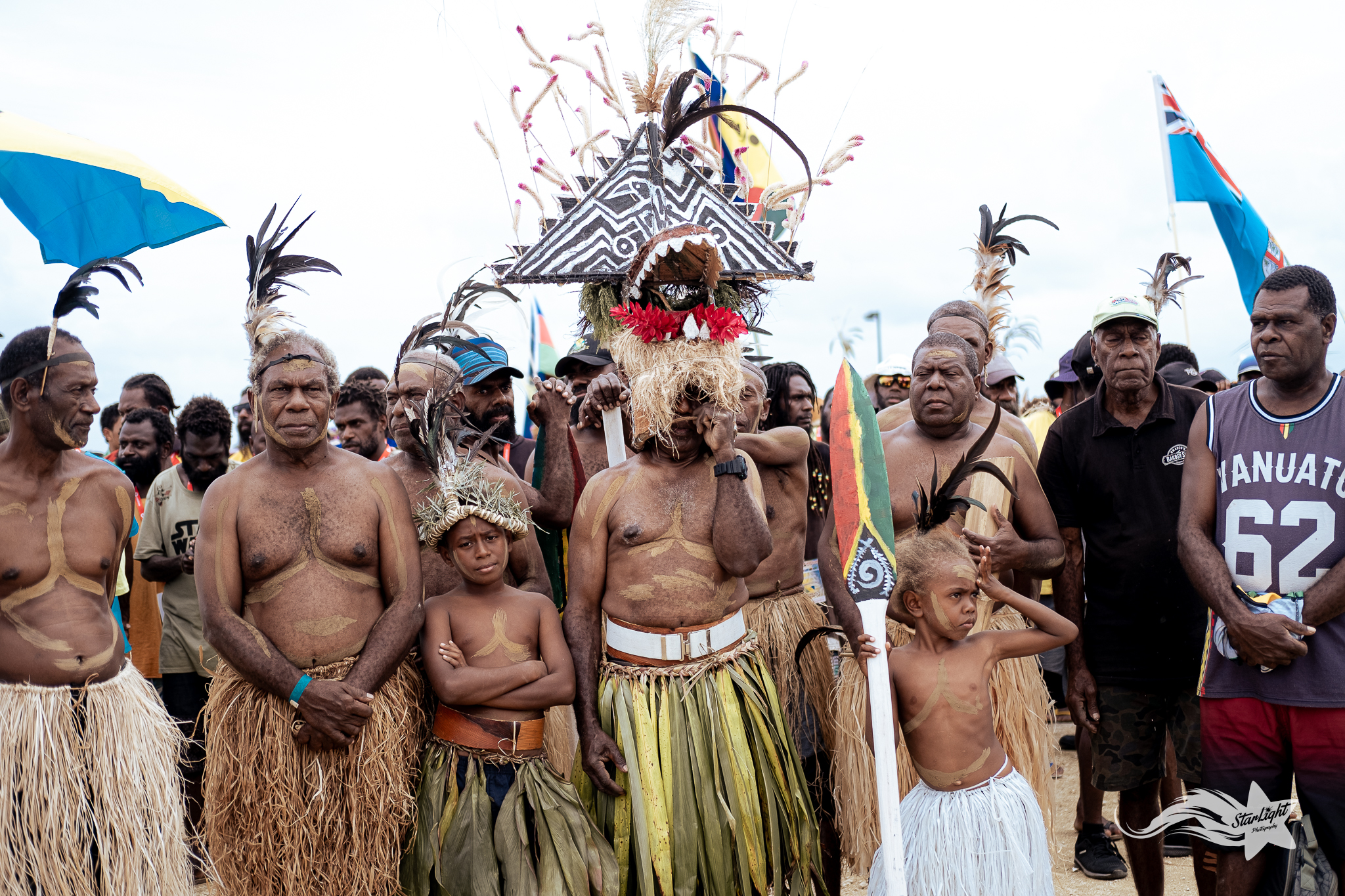
Firstly, the definition of traditional knowledge and cultural expressions in the Treaty is extensive and aims to overcome the limitations of western style intellectual property regimes by expressly including works not in material form, works that have been transmitted from generation to generation, and works that are collectively originated and held. They include the right to reproduce, publish, perform and to make available online traditional knowledge and cultural expressions. The rights are inalienable and continue in force in perpetuity.
Secondly, by ‘user agreements. A user agreement is a valuable tool to ensure that local communities are given a share of profits that come from the use of their traditional knowledge and expressions of culture by others. Approval of agreement is a way of protecting the interests of local communities where access to traditional knowledge will be protected through contractual and legal limitation, rights, and obligations.
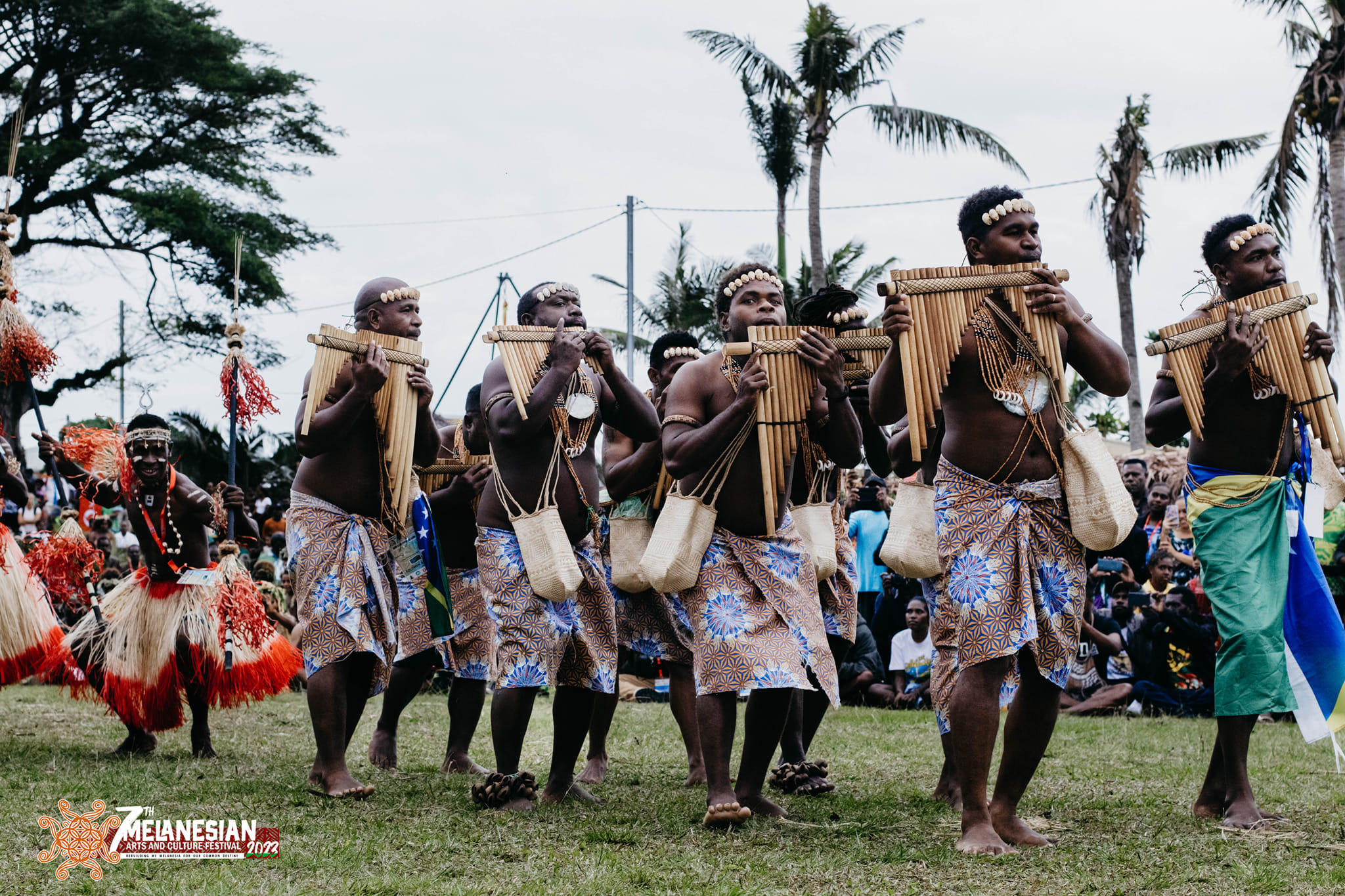
Thirdly, the need for national competent authorities to assist owners of traditional knowledge and expressions of culture when negotiating user agreement. Particularly, the national competent authorities are entrusted with the role of handling negotiation of agreements, vetting and approving user agreements. Any agreement between owners and investors that does not have the blessings of the national competent authority is null and void. This is useful to evade the problems of unscrupulous agents signing contracts authorizing the exploitation of resources against the wishes of the people.
The TKEC is significant as experience had shown that Melanesian traditional knowledge and expressions has been a subject of abuse and misappropriation by unscrupulous individuals who have used them to achieve significant commercial gains without the prior informed consent the owners. This had caused major disenchantment amongst the indigenous peoples of Melanesia, whose traditional knowledge and expressions are intrinsic and sacred.
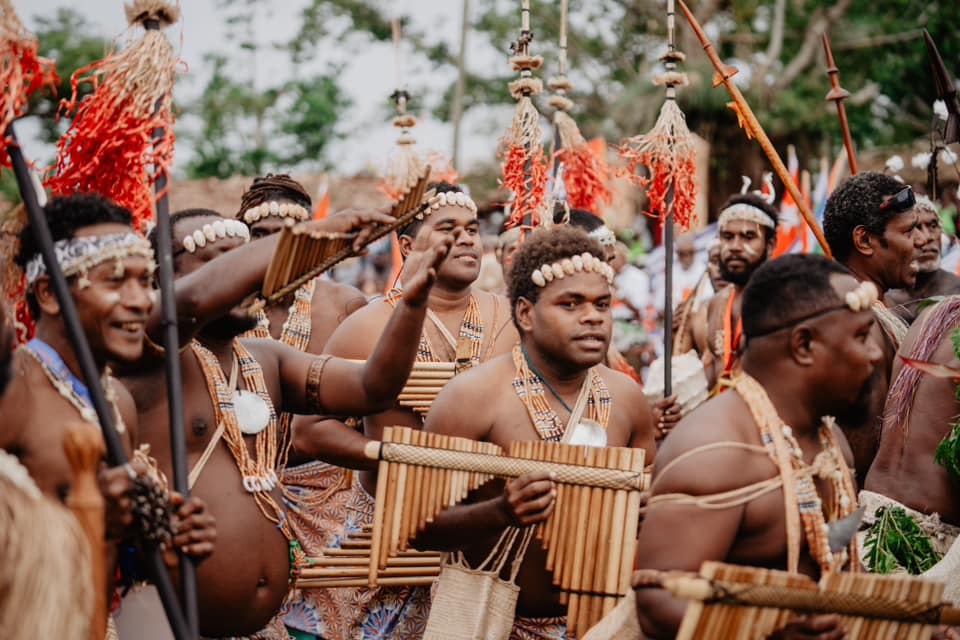
I am reminded that the TKEC is the first treaty in the region of its kind, and whether or not current laws are providing means for legal protections for traditional knowledge and cultural expressions could be the mark against which, the success of this treaty could be judged. But more importantly, my mind also hovered on the role of Melanesian cultures and traditions as they replicated in the institutions and practice of Melanesian regionalism. To a certain extent, Melanesian cultures and traditions informed the practice of MSG diplomacy. At a symbolic level, it is a powerful unifying force expressing a shared identity and purpose among members. It is also a crucial element underpinning much protocol and conduct of MSG meetings, events, and activities. Mats, pigs, kava and taro (dalo) are used in formal meetings to show and exchange mutual respect for each other’s status and sovereignty. The use of mats for instance, signifies respect, forgiveness and represents unity.
In it apparent that over time cultures and tradition had vital role in nurturing stronger inter-state relations between members of the MSG and, where differences arise, in resolving disputes. It is observed that cultures act very much as the glue that holds the MSG together and the strength for community resilience.
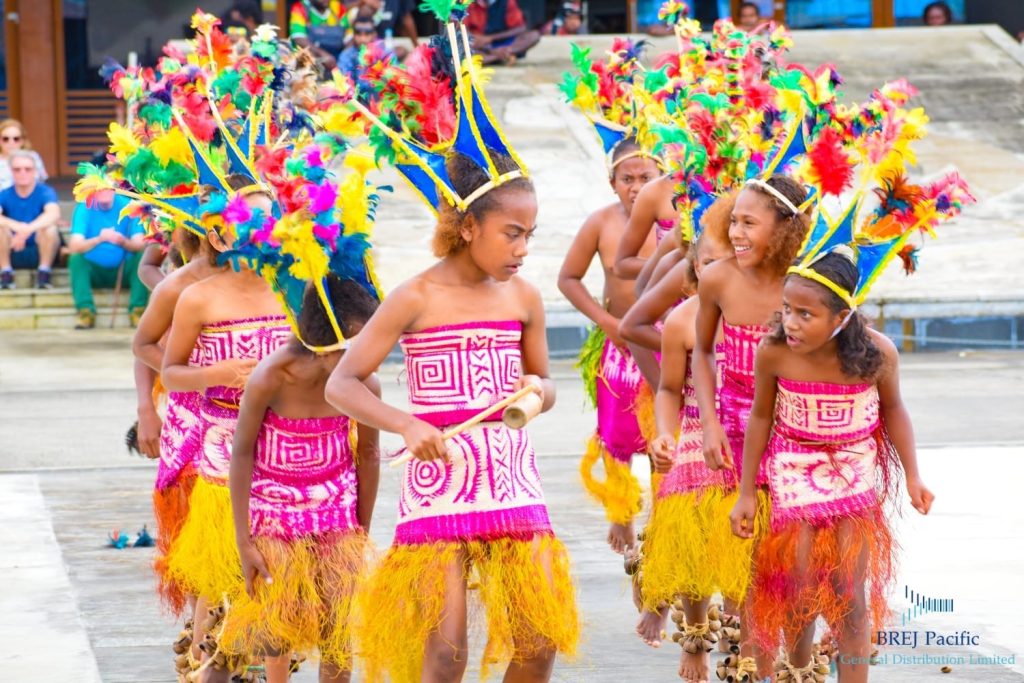
As we move towards an ever more complex and uncertain geopolitical and security future, there is a distinct possibility Melanesian cultures and tradition will come to assume greater prominence in unifying, strengthening, and guiding the diplomacy of the MSG and its members. In the not-too-distant future, I envisage MSG will evolve a practice of international relationships based on Melanesian custom that will be a basis for a uniquely Melanesian diplomacy.
But therein might lie a challenge not for Melanesia or MSG, but international partners seeking to engage meaningfully with Melanesia and the MSG. For these partners, the key to effect partnership will be a deeper understanding of the concepts of Melanesian culture and diplomacy. These concepts explain the interactions between Melanesian states in the global inter-state system and their behaviors toward geopolitical advances in the region. The concepts also explain the conduct of business in Melanesian countries and the MSG as the institution that coordinates interaction between Melanesian countries. In this context, I wish to profoundly commend a Diplomatic Representative of a particular country in Vanuatu and her staff for displaying deeper understanding of the Melanesian cultures as she engaged meaningful in the custom ceremonies and rituals and in leading the group that came to participate at the festival.
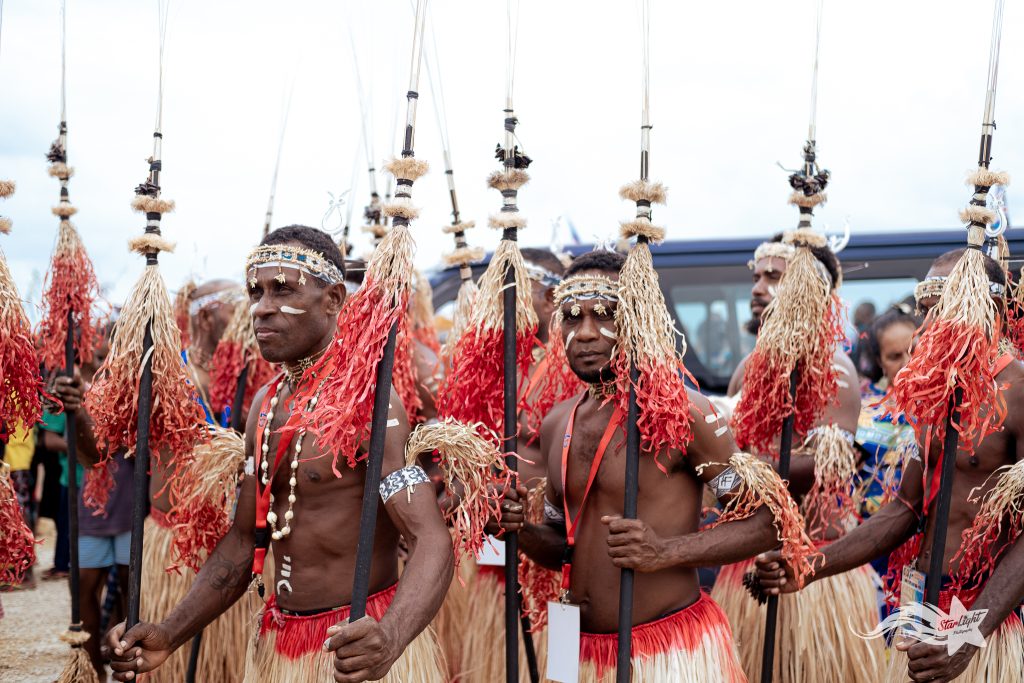
For some and too often, the views expressed on the basis of Melanesian cultures and diplomacy are either dismissed or ignored. This is unfortunate. I believe it is crucial for Melanesian cultures to be given more recognition they deserve in regional diplomacy. This is a matter to some extent of practicality to get towards mutually beneficial shared outcomes in diplomacy. But it is also one of according dignity and respect where it is due. In the words of one of the foremost Melanesian philosophers, the late Bernard Narakobi:
“Melanesians have had a civilisation with its customs, values, knowledge, and wisdoms which have guided them through the ages. These are their revealed truths. Our history did not begin with contact with the Western explorers. Our civilisation did not start with the coming of the Christian mission: Because we have an ancient civilisation, it is important for us to give proper dignity and place to our history.”
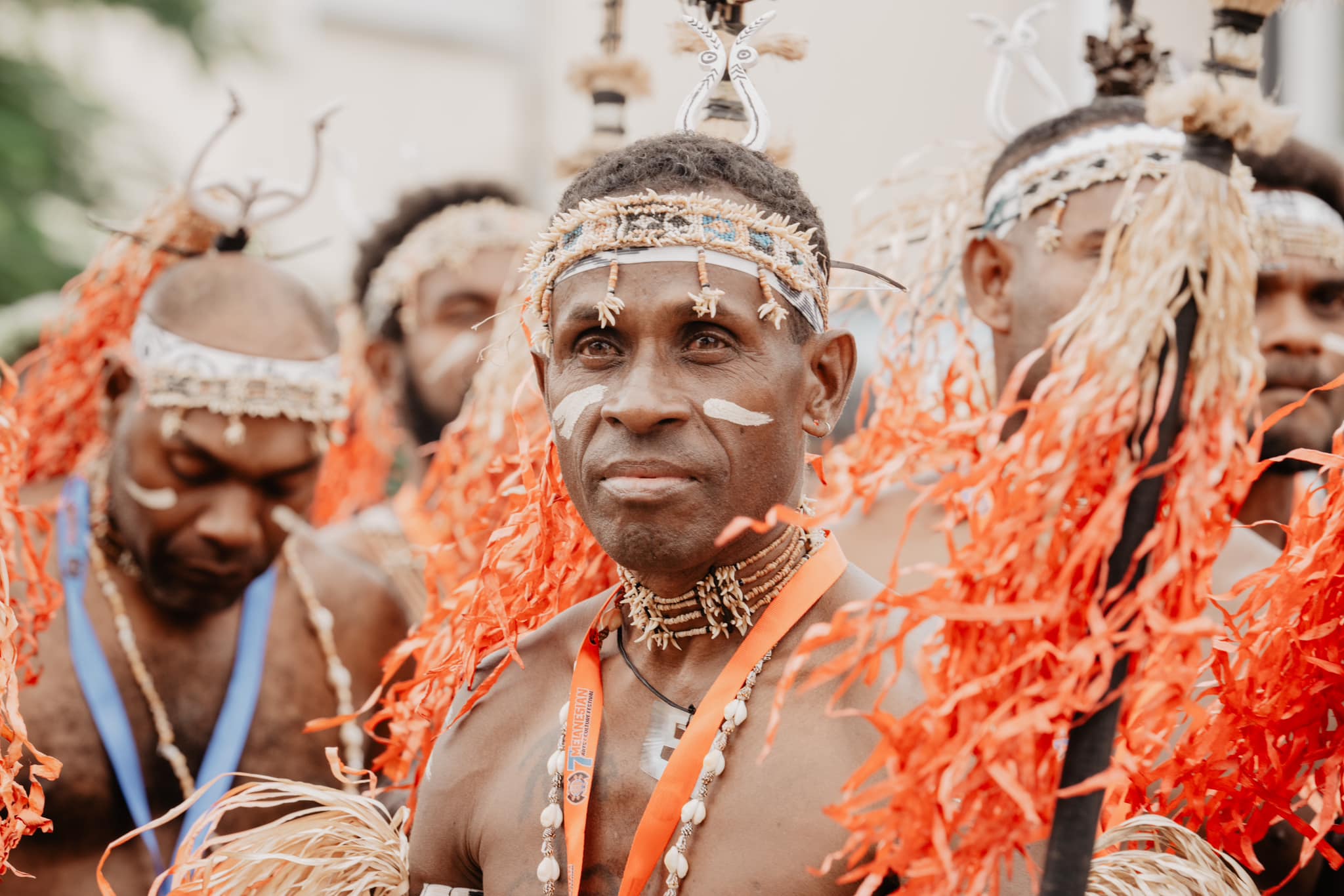
Ilan Kiloe is the head of Political and Security programme at the Melanesian Spearhead Group (MSG Secretariat based in Port Vila, Vanuatu. He has been working for the MSG Secretariat since 2010 and is the longest serving staff of the sub-regional organisation. Kiloe’s areas of interest are in international law, security and diplomacy, being a lawyer by profession himself with Master Laws (LLM) degree from the University of the South Pacific (USP).
SOURCE: MSG SECRETARIAT/PACNEWS






